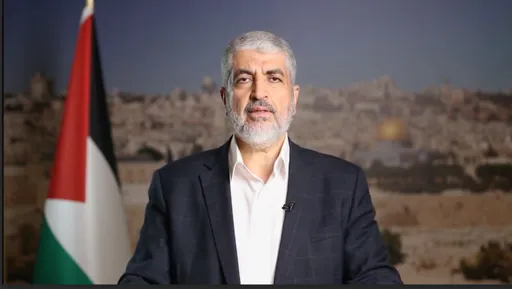As a key NATO member, Turkiye has reiterated its support to Ukraine in light of Russia's militaristic rhetoric that poses a major challenge to the Western alliance in Eastern Europe.
“We are members of NATO and one of the most active members of decision-making mechanisms on international security issues,” Fahrettin Altun, Turkiye's Communications Director, told Bloomberg, an American media outlet.
Altun's comments came hours before Turkish President Erdogan's visit to Kiev on Thursday.
“We do not target another country when we do and implement the agreements and collaborations we have made. Russia is one of the countries that knows this best,” Altun said, referring to a critical defence agreement signed in 2020 by Ankara and Kiev.
Although Kiev ratified it in November 2021, the country had already angered Russia by acquiring highly-sophisticated Turkish-made drones a year before.
Turkish President Recep Tayyip Erdogan is now scheduled to sign ten different deals with Kiev on his visit to the country. The deals are related to several areas from trade to culture, education and industry. Erdogan previously said there "should be no doubt" in Turkiye's commitment to NATO.
"Ukraine is not an ordinary country. Ukraine is a strong country," Erdogan said, while reiterating Turkiye's support to the country that is facing the grim prospect of full-scale Russian invasion.
Ankara has been urging both sides to shun aggressive stances and start a diplomatic process to avoid war.
NATO has sent big supplies of weapons and deployed forces in Eastern Europe in response to Russia's military build up on the Ukraine border.
But Turkiye’s purchase of Russian S-400s has also angered its NATO ally, the US. In both cases, Turkish leadership aimed to secure its vital security interests for regional stability.
While Altun reminded both the Western alliance and Russia that Turkiye would fulfill its security commitments based on its membership to NATO, he said Turkiye will continue to work on building a common ground between the two sides.
Turkiye’s mediation efforts
The Western alliance has criticised Turkiye's stance on Syria, where Ankara has developed a political partnership with Russia to address the country’s bloody conflict. The two powers came on the table to build peace in the war-ravaged country in the absence of any reliable support from the Western alliance.
But with escalations in the Ukrainian conflict, Ankara's mediation efforts from Syria to Ukraine are being noticed and appreciated by some NATO officials and several Western security analysts.
“Turkiye will do its part both in the formation and implementation of a common policy,” Altun said, referring to the country’s mediation efforts.
Straddling Europe and Asia, Turkiye has maintained that its foreign policy on different regional conflicts in the complicated Eurasian region is driven by the idea of enhancing both national and international security.
“We do not share the responses of our interlocutors on this issue with the public until a concrete solution is reached. That was our stance before. But I can say that as Turkiye, both sides are aware that our good intentions on the issue are clear,” Altun said.
Turkiye is in a better position to help address the Ukrainian crisis because Ankara is a NATO ally and shares a positive working relationship with Russia.
“We are ready to do our part to restore dialogue and peace,” Altun said, proposing both sides that Turkiye could host negotiations and facilitate any peace talks.
President Putin recently accepted President Erdogan's invitation for a visit, which is likely to take place in mid-February.
Altun stressed that Turkiye’s close ties with Ukraine have nothing to do with the current crisis as the two countries have shared friendly relations for several years.
Criticism of the Western stance
Altun also provided a candid criticism toward the Western alliance, which Turkiye has been part of for more than six decades, concerning their sanctions-based stances toward Moscow and other capitals.
“Some governments in the West, unfortunately, don't mention much about the economic and social destruction it caused and the destabilizing effect it has had on the region, assuming that the crisis is only between the two capitals,” Altun said.
Despite the West's destabilising effects and Russia’s regional ambitions, Turkiye can help both sides settle their differences, functioning devotedly like “a lightning rod” because Ankara strongly considers that the security of Ukrainian people comes first.
“We expect everyone to act prudently and constructively so that the current tense environment does not harm our region and most importantly the Ukrainian people,” Altun concluded.























